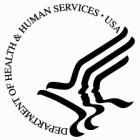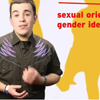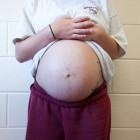
Majority of Young Adults Don’t Know Enough About Birth Control Methods, Study Finds
|
A majority of young adults don’t know enough about contraceptives, according to results from a new Guttmacher Institute study. Six in 10 supposedly “underestimate” the effectiveness of birth control pills and other oral contraceptives. The report, Young Adults’ Contraceptive Knowledge, Norms and Attitudes: Associations with Risk of Unintended Pregnancy, involved 1,800 young adults, ages 18 to 29. Although approximately half of the male responders - and about 70 percent of female survey takers - stated that they were “committed to avoiding pregnancy,” around 40 percent of the survey population believed birth control was irrelevant, stating that “when it is your time to get pregnant, it will happen.”
The study shows a clear connection between young adults’ knowledge of contraceptive methods and devices and the likelihood they would engage in unprotected sexual intercourse. According to the authors, the odds of a female responder having unprotected sex within a three month window decreased by about nine percent with every correct answer she submitted for the questionnaire, with the odds of the responder using long-acting forms of contraception, such as hormonal treatments, rising by 17 percent.










